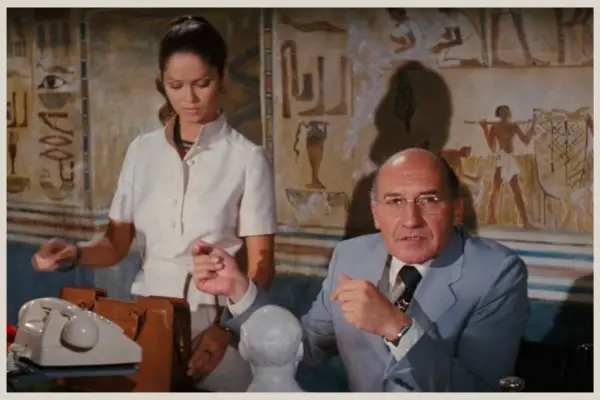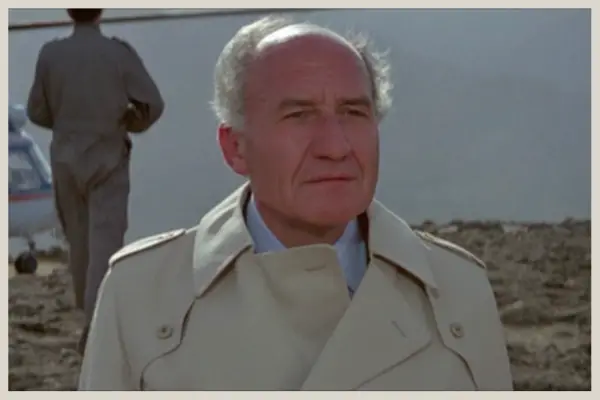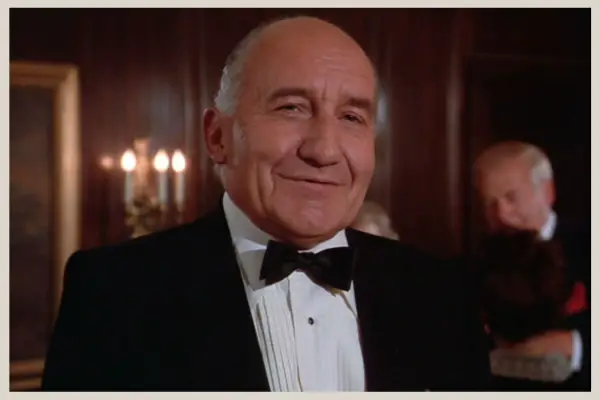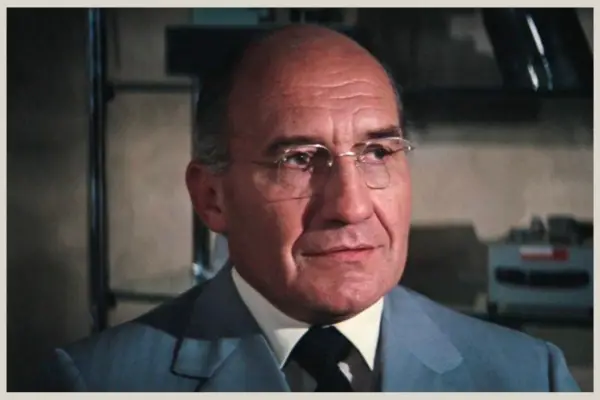General Gogol: The Enigmatic Diplomat from Bond’s Cold War Era
In the realm of James Bond movies, few characters have managed to embody the complex nuances of the Cold War era quite like General Gogol. Played by german actor Walter Gogol, the enigmatic and shrewd head of the KGB, General Gogol is only a minor character, but is a fascinating figure in Bond’s world.
For those who appreciate the intricate web of politics and espionage that the Bond films offer, General Gogol is a character who cannot be ignored. From his first appearance in The Spy Who Loved Me to his final appearance in Licence to Kill, no character has had varied motivations, loyalties, and relationships with the other characters from the Bond universe.
Contrary to the common perception that the James Bond franchise is heavily centered on the Cold War, General Gogol is never portrayed as an outright villain. In moments of tension, he emerges as an adversary, yet frequently aligns with Bond to combat mutual threats to global peace.
General Gogol
The Spy Who Loved Me
General Gogol makes his debut in The Spy Who Loved Me, where he assigns Agent XXX, Anya Amasova the crucial mission of retrieving a vital microfilm.
As the story unfolds, General Gogol and MI6 Head, M, forge an alliance that marks the beginning of an Anglo-Soviet partnership. This collaboration is driven by their shared objective of capturing the notorious Karl Stromberg, who is behind the hijacking of British and Soviet submarines.

Moonraker
In Moonraker, General Gogol reappears, engaging in a phone conversation with USAF Colonel Scott regarding Hugo Drax‘s space station. Gogol clarifies to the Americans that the space station is not affiliated with the Soviet Union and that they intend to conduct their own investigation after the US has intercepted it.
Colonel Scott apologizes for the untimely call, considering the time difference, but Gogol dismisses the apology, stating that “problems in Russia keep him awake,” refering to the woman in a nightdress he’s with.
For Your Eyes Only
In For Your Eyes Only, General Gogol expresses interest in purchasing an ATAC communicator from Aristotle Kristatos, following the sinking of the ship carrying the device.
After recovering the ATAC, Kristatos sets up a sale at his private base. However, Gogol arrives just as Bond and his allies confront Kristatos for the murders he committed while acquiring the communicator.
In a dramatic turn of events, Bond throws the device off a cliff, leaving Gogol momentarily disappointed, but he refrains from ordering his men to shoot Bond.
Acknowledging Bond’s remark that the ATAC’s destruction helps maintain détente, Gogol chuckles, realizing that the status quo of relative peace between nations remains unaltered.

Octopussy
In Octopussy, when General Orlov suggests invading Western Europe during a politburo meeting, General Gogol vehemently opposes him, emphasizing the risk of inciting a full-scale nuclear war and asserting that the USSR seeks peace rather than conflict.
The Soviet premier supports Gogol’s stance, but Orlov opts to act independently. Gogol’s investigation into Orlov’s scheme to undermine NATO’s defense unfolds concurrently with Bond’s.
However, the unauthorized shooting of the treacherous general by Gogol’s subordinates prevents him from uncovering all the details of Orlov’s plot and alerting NATO. Despite this setback, Bond successfully thwarts Orlov’s plan on Gogol’s behalf.
Later, Gogol appears before M to inform him that his government will deny the incident and request the return of the Romanov Star.
A View to a Kill
In A View to a Kill, General Gogol turns up in France, where he chastises Max Zorin, a former KGB agent, for pursuing his own interests and engaging in activities that endanger the balance of power and global stability.
Zorin, considering himself no longer affiliated with the KGB, disregards Gogol’s authority. Gogol uncovers the details of Operation Main Strike and insists that Zorin immediately cease his plans.
Zorin defies Gogol’s order to halt his plan, so Gogol dispatches KGB agent Pola Ivanova to investigate Zorin’s activities. During her encounter with Bond, Pola attempts to take a tape from him and deliver it to Gogol, but she gets him the wrong tape.
At the end of the film, Gogol presents Bond with the prestigious Order of Lenin for thwarting Zorin’s scheme to annihilate Silicon Valley. He tells Bond that he’s the first non-Soviet citizen to receive the honour, noting the KGB’s vested interest in Silicon Valley, where they maintain a technological hub of their own.

Licence to Kill
In The Living Daylights, it’s revealed that General Gogol has retired from the KGB, with General Pushkin succeeding him in the position.
Gogol reappears toward the end of the film, now serving as a diplomat in the Foreign Ministry. He attends Kara Milovy‘s concert alongside M and presents Milovy with a visa, granting her the freedom of the Eastern Bloc.
Walter Gotell
Walter Jack Gotell was born on March 15, 1924, in Bonn, Germany, and later emigrated to Britain with his family due to the rise of Nazism. With fluency in English, Gotell made his film debut in 1942 in an uncredited role in The Day Will Dawn.
Throughout the 1940s, he often portrayed villains and German officers in films such as We Dive at Dawn (1943). From the 1950s onwards, Gotell appeared in more prominent roles in films like The African Queen (1951), The Red Beret (1953), Ice Cold in Alex (1958), and The Guns of Navarone among others.
However, Gotell is most famous for his roles in the James Bond franchise. He first played the henchman Morzeny in From Russia with Love (1963) before taking on the recurring role of KGB General Anatol Gogol, which he played in 6 different Bond films.
Gotell is among the few actors who played both an antagonist and a Bond ally in different films, joining Charles Gray, Richard Kiel, and Joe Don Baker.





